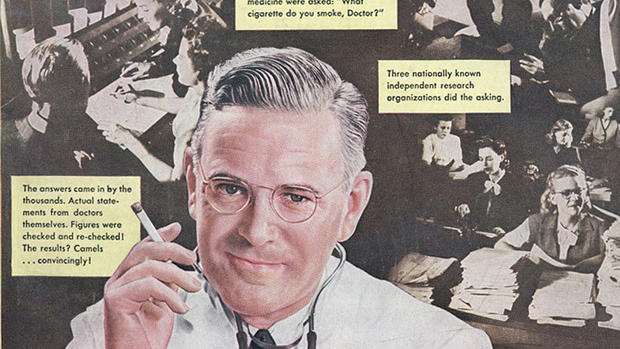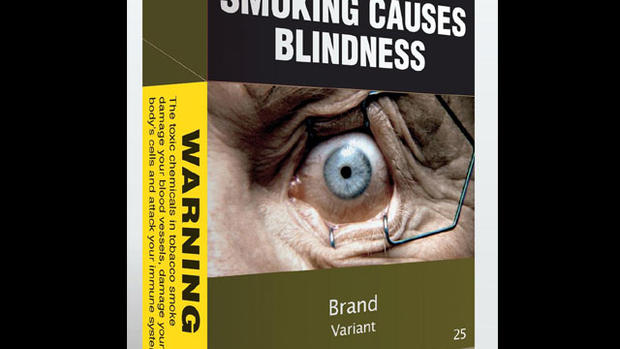Almanac: Cigarette package warnings
And now a page from our "Sunday Morning" Almanac: July 27th, 1965, 49 years ago today . . . the day the federal government tried to clear the air about cigarette smoking and health.
For that was the day President Lyndon Johnson signed legislation requiring warning labels on packages of cigarettes.
The warnings came a year-and-a-half after Surgeon General Luther Terry announced the findings of a groundbreaking study:
"It is the judgment of the Committee that cigarette smoking contributes substantially to mortality from certain specific diseases and to the overall death rate."
The warning labels were a warning shot across the bow for an industry that for years had entrenched itself in both our national economy and popular culture.
Scenes of smoking became routine in movies; and cigarette commercials -- with their fanciful characters and catchy jingles -- were a television staple for years.
But as of the beginning of 1971, TV commercials were banned.
By 1990, smoking was prohibited on all commercial airliners within the United States.
And in 1998, the tobacco industry reached a $206 billion settlement with 46 states as compensation for the Medicaid money that they'd spent treating smoking-related illnesses.
Today, smoking is banned in an increasing number of public places around the country . . . even as warning labels have become more menacing and graphic.
Still, despite all the bans and warnings, the CDC estimates that just over 42 million American adults -- nearly one in five -- continue to smoke.
The CDC also blames smoking for 480,000 deaths a year . . . about one death in every five.

